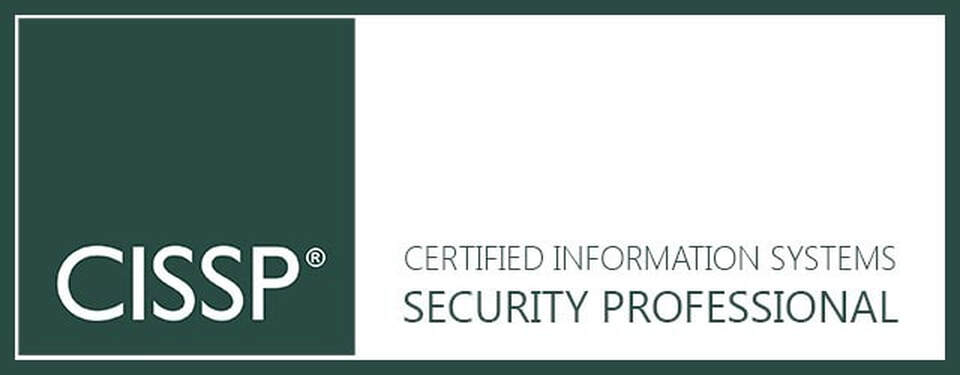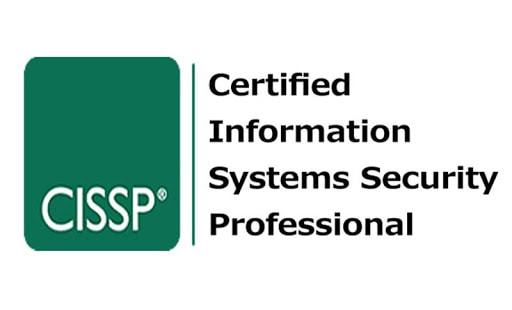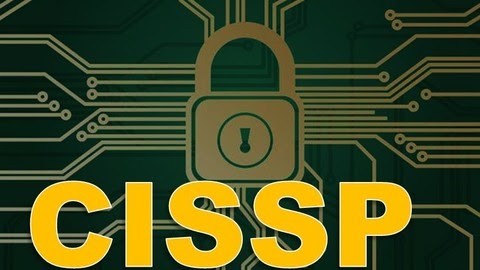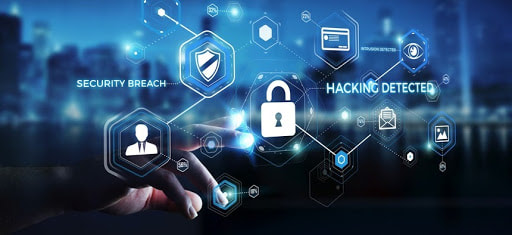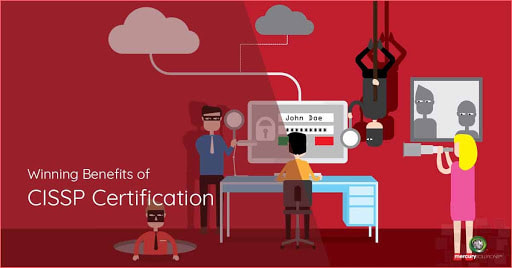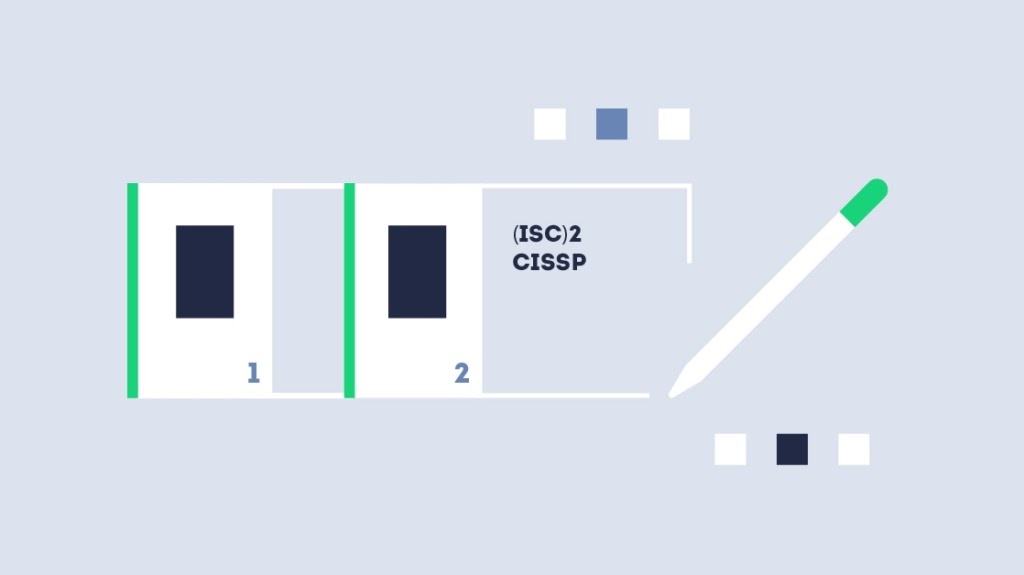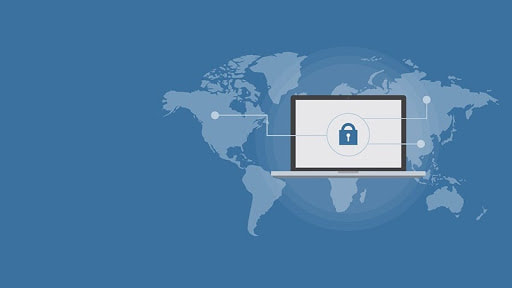What Are the Benefits of CISSP Certification?
Deemed as a quality standard in the fields of information security and information technology, the CISSP is one of the most valued certifications one can acquire.
Holders of the CISSP certification are in-demand for various positions; most notable of which are security consultants, security analysts, security managers, network architects, IT directors and managers, chief information security officers, and security systems engineers.
The demand for CISSP certification continues to rise due to the rise of cybersecurity threats, phishing attacks, and in-house security breaches. It’s safe to say that it won’t be superseded any time soon.
If you plan on becoming one of the 147,591 CISSP holders worldwide, you ought to stick around, as this in-depth article will cover everything you need to know about the certification.
Holders of the CISSP certification are in-demand for various positions; most notable of which are security consultants, security analysts, security managers, network architects, IT directors and managers, chief information security officers, and security systems engineers.
The demand for CISSP certification continues to rise due to the rise of cybersecurity threats, phishing attacks, and in-house security breaches. It’s safe to say that it won’t be superseded any time soon.
If you plan on becoming one of the 147,591 CISSP holders worldwide, you ought to stick around, as this in-depth article will cover everything you need to know about the certification.
What Is CISSP Certification?
|
The CISSP is a certification that was introduced in 1994 and is still offered by the international non-profit organization, (ISC)2.
The (ISC)2 has been greatly contributory in the fields of information security and information technology since its inception in 1989. The (ISC)2 offers several credentials, with the CISSP certification being the most prominent. Currently, the organization boasts thousands of members; 147,591 of which are CISSP holders. |
The CISSP certification is in compliance with the ISO/IEC Standard 17024. The CISSP exam is available in 8 languages and 114 countries (882 locations). More on the exam shortly.
How sought-after is the CISSP certification, exactly? A quick sift-through LinkedIn will show you that it’s one of the most in-demand security certifications today.
CISSP holders have a deep understanding of both existing and emerging threats in the spectrum of cybersecurity. They also know how to prevent such threats from coming into effect.
How sought-after is the CISSP certification, exactly? A quick sift-through LinkedIn will show you that it’s one of the most in-demand security certifications today.
CISSP holders have a deep understanding of both existing and emerging threats in the spectrum of cybersecurity. They also know how to prevent such threats from coming into effect.
|
CISSP Certification Domains
The critical body of knowledge that the CISSP certification encompasses is divided into eight domains, which are:
|
For you to earn your CISSP, you must have experience in at least two of the above-listed domains, in addition to passing the exam, of course.
|
CISSP Certification Requirements
To earn your CISSP certification, there are two requirements that you need to fulfill. The first requirement is, of course, to pass the exam. The second requirement, which many tend to pay less attention to than the first requirement during the planning phase, is previous work experience. |
To qualify for a CISSP, you need to have at least five years of experience under your belt in two of the above-listed domains.
Keep in mind, however, that internships and part-time experience can be accounted for. For internships, documentation must be provided to solidify your status as an intern.
As far as part-time work experience, it cannot be any less than 20 hours a week or any more than 34 hours a week.
You should also note that a four-year college degree will satisfy one year of the five required years. This also applies to regional equivalents as well as other (ISC)2 approved credentials.
Click here to learn more about CISSP certification requirements.
As far as part-time work experience, it cannot be any less than 20 hours a week or any more than 34 hours a week.
You should also note that a four-year college degree will satisfy one year of the five required years. This also applies to regional equivalents as well as other (ISC)2 approved credentials.
Click here to learn more about CISSP certification requirements.
|
CISSP Certification Exam
The CISSP exam is composed of two types of questions: advanced innovative items and multiple choice. The questions over the eight domains listed above. Click here for an in-depth breakdown. What are “advanced innovative items” questions, you may be wondering? |
Don’t let the way they sound intimidate you; they’re basically questions that require you to identify and fill certain elements within a given diagram. You simply drag the element from one side of the screen and drop it onto the other.
Note that not all versions of the exam are the same. The English version, for instance, utilizes a computerized adaptive testing (CAT) model, meaning the test is taken on a computer that adjusts the questions that make up the exam based on your performance.
The English version of the CISSP exam consists of 100-150 questions and it takes around three hours to complete.
Other versions of the exam rely on a linear model of questions, meaning the questions don’t change based on your performance. These versions consist of 250 questions, though, and require around six hours to complete.
The passing grade for the CISSP exam, be it in English or a different language, is between 700 and 1,000 points. Preliminary scores are given to examinees so that they know whether they’ve passed or not.
There are plenty of resources online that will help you set proper expectations for the CISSP exam, including the (ISC)2’s very own resource page and community forums.
Note that not all versions of the exam are the same. The English version, for instance, utilizes a computerized adaptive testing (CAT) model, meaning the test is taken on a computer that adjusts the questions that make up the exam based on your performance.
The English version of the CISSP exam consists of 100-150 questions and it takes around three hours to complete.
Other versions of the exam rely on a linear model of questions, meaning the questions don’t change based on your performance. These versions consist of 250 questions, though, and require around six hours to complete.
The passing grade for the CISSP exam, be it in English or a different language, is between 700 and 1,000 points. Preliminary scores are given to examinees so that they know whether they’ve passed or not.
There are plenty of resources online that will help you set proper expectations for the CISSP exam, including the (ISC)2’s very own resource page and community forums.
Benefits of CISSP Certification
Now that we’ve touched on what CISSP certification is all about, it’s time to talk about why you should even consider earning a CISSP. Below are some of the most notable benefits of CISSP certification.
Now that we’ve touched on what CISSP certification is all about, it’s time to talk about why you should even consider earning a CISSP. Below are some of the most notable benefits of CISSP certification.
Organizations all over the world, including big-name companies like Google, IBM, and P&G, recognize the value that this certification brings, and so they prioritize the hiring of CISSP holders.
As a CISSP holder, you’re viewed by such companies as an expert that has the commitment, knowledge, and skills required to fill important positions in the cybersecurity field.
As a CISSP holder, you’re viewed by such companies as an expert that has the commitment, knowledge, and skills required to fill important positions in the cybersecurity field.
|
In-Demand Certification
The demand for CISSP holders is continuously on the rise and it’s showing no signs of slowing down. The certification, along with its holders, is acknowledged in over 160 countries. Virtually all business domains are reliant on information security and information technology, which emphasizes the value that CISSP certification brings. |
Cybersecurity threats, phishing attacks, and other forms of hacking are constantly advancing, and with that, the field of information security is advancing, as well, maintaining the coveted status of being a CISSP holder.
|
Accelerated Career
Compared to most other credentials within the field of cybersecurity, the CISSP certification is the most in-demand. In fact, according to a workforce study conducted by (ISC)2, there’s a global shortage of around 2.9 million professionals in the cyber workforce. That being said, earning a CISSP certification can help boost your career track exponentially and make you stand out among your peers. |
Also, there are CISSP concentrations that you can take to build upon your CISSP knowledge and expertise.
Notable concentrations include CISSP-ISSEP for Engineers, CISSP-ISSMP for Management, and CISSP-ISSAP, for Architects.
Notable concentrations include CISSP-ISSEP for Engineers, CISSP-ISSMP for Management, and CISSP-ISSAP, for Architects.
|
Maximized Earning
Just as your career will be advanced notably with a CISSP certification, your earning potential will, too. Did you know that the average CISSP holder earns around $131,000 a year? Such high salaries aren’t associated with CISSP certification just because it's prestigious, but because it reflects that the certification holder possesses extensive cybersecurity knowledge and experience, as well as great dedication and work ethics. |
It’s unheard of for a CISSP holder to be earning a mediocre salary. Employers recognize the value that CISSP certification brings to the table, and so they associate it with premium salaries.
|
Deep Knowledge
As a holder of the CISSP certification, you’ll have a deep understanding of all the fundamental elements of the information security sector. From security and communication to risk management and network security to operations and security testing, the CISSP is all-encompassing of all things cybersecurity. Also, CISSP certification ensures that its holder understands how every aspect of information security can be implemented into the ecosystem of an organization. |
As a CISSP holder, you have the knowledge and skills required to tackle and overcome such threats, which, in turn, increases your utility value in the eyes of employers and organizations.
Some of the more popular roles, as we mentioned earlier, are security consultants, security analysts, security managers, IT directors, network architects, and more.
As an (ISC)2 member, you get to enjoy a number of benefits, including professional development courses via PDI (Professional Development Institute).
Further, you get to continue your professional education by attending big-name industry events like Secure Summits.
(ISC)2 members also get to enjoy free webinars, many networking opportunities, discounts on approved (ISC)2 credentials, discounted and free events, access to Info-Security Professional Magazine, and global recognition through the (ISC)2 Global Awards Program.
Further, you get to continue your professional education by attending big-name industry events like Secure Summits.
(ISC)2 members also get to enjoy free webinars, many networking opportunities, discounts on approved (ISC)2 credentials, discounted and free events, access to Info-Security Professional Magazine, and global recognition through the (ISC)2 Global Awards Program.
What Are the Skills Developed After CISSP?
After completing your CISSP course, you’ll have a deep understanding of virtually all the sectors of information security.
You’ll be able to define the design, architecture, and management of different security systems within different organizations.
You’ll also acquire the working knowledge required to dabble in the eight domains that make up the CISSP’s common body of knowledge.
Moreover, you’ll learn all about the methodology of software as well as security, access control systems, and the optimization of security operations.
The biggest draw of all is that you’ll be acknowledged as a CISSP certified professional, which will help you land the roles you desire and maximize your earning potential.
You’ll be able to define the design, architecture, and management of different security systems within different organizations.
You’ll also acquire the working knowledge required to dabble in the eight domains that make up the CISSP’s common body of knowledge.
Moreover, you’ll learn all about the methodology of software as well as security, access control systems, and the optimization of security operations.
The biggest draw of all is that you’ll be acknowledged as a CISSP certified professional, which will help you land the roles you desire and maximize your earning potential.
How Long Does It Take to Study for CISSP?
|
The time it will take you to prepare for the CISSP exam boils down, firstly, to the extensiveness of your experience. It’s highly unlikely that you’ll be equally experienced in all eight domains. If you have a ton of real-world experience, however, you’re expected to do good.
In addition to experience, your study style and the way you prepare for the exam will definitely influence how you perform. It’s highly recommended that you put most of your free time into studying for the exam, and that should take place over the course of around three months. |
According to some (ISC)2 members, they’ve put in 150-160 hours in order to prepare for their CISSP exam.
There are others who said that they’ve studied 6-7 hours a day for three months to prepare for the exam.
To our surprise, there are people who claim to have passed the CISSP exam after studying for a fraction of the above-mentioned timeframes, which is hard to believe, but then again, if you’re an infosec pro with a ton of experience, it’s possible.
As you can see, though, the CISSP exam is not to be taken lightly. It requires extensive preparation and quite a bit of time, so be sure you have the dedication and time to spare before signing up for it.
There are others who said that they’ve studied 6-7 hours a day for three months to prepare for the exam.
To our surprise, there are people who claim to have passed the CISSP exam after studying for a fraction of the above-mentioned timeframes, which is hard to believe, but then again, if you’re an infosec pro with a ton of experience, it’s possible.
As you can see, though, the CISSP exam is not to be taken lightly. It requires extensive preparation and quite a bit of time, so be sure you have the dedication and time to spare before signing up for it.
How Much Does the CISSP Certification Cost?
The cost of registering for the exam in the US is $699. If you take the exam somewhere else, you’ll probably pay a close equivalent in a different currency, depending on the country you’re in.
Having passed the exam, you’ll be required to agree to the code of ethics set by the (ISC)2. You’ll also need to demonstrate that you have the necessary work experience by securing colleague endorsements.
It’s worth noting that you can take the CISSP exam before having accumulated the prerequisite work experience. If you pass the exam, you have a window of six years to accumulate work experience.
Now that you have your CISSP certification, you’ll need to maintain it by paying an annual fee of $125. The fee is due on the date you’ve acquired your certification.
Note that you’re only required to pay the annual fee once a year even if you have more than one certification from the (ISC)2.
The annual fee is only $50 a year if you’re an “Associate of (ISC)2,” which is the title given to those who have passed the CISSP exam but haven’t accumulated the required work experience yet.
Having passed the exam, you’ll be required to agree to the code of ethics set by the (ISC)2. You’ll also need to demonstrate that you have the necessary work experience by securing colleague endorsements.
It’s worth noting that you can take the CISSP exam before having accumulated the prerequisite work experience. If you pass the exam, you have a window of six years to accumulate work experience.
Now that you have your CISSP certification, you’ll need to maintain it by paying an annual fee of $125. The fee is due on the date you’ve acquired your certification.
Note that you’re only required to pay the annual fee once a year even if you have more than one certification from the (ISC)2.
The annual fee is only $50 a year if you’re an “Associate of (ISC)2,” which is the title given to those who have passed the CISSP exam but haven’t accumulated the required work experience yet.
How to Prepare for the CISSP Exam?
|
There are two ways you can go about preparing for your CISSP exam: study guides and format training. The two can be combined for the best results.
There are many CISSP study guides that you can resort to; most popular of which is the (ISC)2 official study guide. Another popular option is the CISSP All-in-One Exam Guide, as it comes with a host of practice exams. |
Another option you should check out is SSI Logic’s book, which contains 1,000 practice questions revolving around CISSP. The book contains detailed solutions for all the questions, too.
If study guides and books aren’t enough for you, you should consider formal training. The (ISC)2 has two CISSP training courses; one is self-paced and the other is instructor-led.
The self-paced training course seems to have the upper hand in terms of popularity because, as the name suggests, it enables you to study at your own leisure.
The instructor-led program, however, is quite convenient because it enables you to ask questions and get prompt answers. It’s held both in classrooms and online, so you get to choose the option that suits you most.
Apart from (ISC)2 training programs, there are several courses and boot camps offered by third-party providers. Udemy, Infosec, and Learning Tree are some of the best providers of CISSP courses.
Udemy’s CISSP Certification: CISSP Domain 1 & 2 Video Bootcamp and CISSP Certification: CISSP Domain 3 & 4 Video Bootcamp are currently at the top of the list of all CISSP training programs
It’s followed by the official (ISC)2 training program, Infosec’s CISSP Certification Boot Camp, and Learning Tree’s CISSP Training and Certification Exam Preparation.
If study guides and books aren’t enough for you, you should consider formal training. The (ISC)2 has two CISSP training courses; one is self-paced and the other is instructor-led.
The self-paced training course seems to have the upper hand in terms of popularity because, as the name suggests, it enables you to study at your own leisure.
The instructor-led program, however, is quite convenient because it enables you to ask questions and get prompt answers. It’s held both in classrooms and online, so you get to choose the option that suits you most.
Apart from (ISC)2 training programs, there are several courses and boot camps offered by third-party providers. Udemy, Infosec, and Learning Tree are some of the best providers of CISSP courses.
Udemy’s CISSP Certification: CISSP Domain 1 & 2 Video Bootcamp and CISSP Certification: CISSP Domain 3 & 4 Video Bootcamp are currently at the top of the list of all CISSP training programs
It’s followed by the official (ISC)2 training program, Infosec’s CISSP Certification Boot Camp, and Learning Tree’s CISSP Training and Certification Exam Preparation.
In Summary
The CISSP is one of the most prestigious certifications in the cybersecurity spectrum. CISSP holders are held in high regard and viewed as experts in the field.
The CISSP grants its holder a range of benefits, including worldwide recognition, accelerated career track, maximized earning potential, deep information security knowledge, higher utility, higher preference as far as raises and promotions, and a host of (ISC)2 member benefits.
Preparing for the CISSP exam is not a walk in the park. It requires a total of 150-160 hours in preparation. Luckily, there are many study guides and training programs that help simplify the preparation process. Just make sure you have the dedication and time to spare. Good luck!
The CISSP grants its holder a range of benefits, including worldwide recognition, accelerated career track, maximized earning potential, deep information security knowledge, higher utility, higher preference as far as raises and promotions, and a host of (ISC)2 member benefits.
Preparing for the CISSP exam is not a walk in the park. It requires a total of 150-160 hours in preparation. Luckily, there are many study guides and training programs that help simplify the preparation process. Just make sure you have the dedication and time to spare. Good luck!
Thinking about CISSP certification? Take the next step and sign-up for your free CISSP NOW! ebook study guide!

